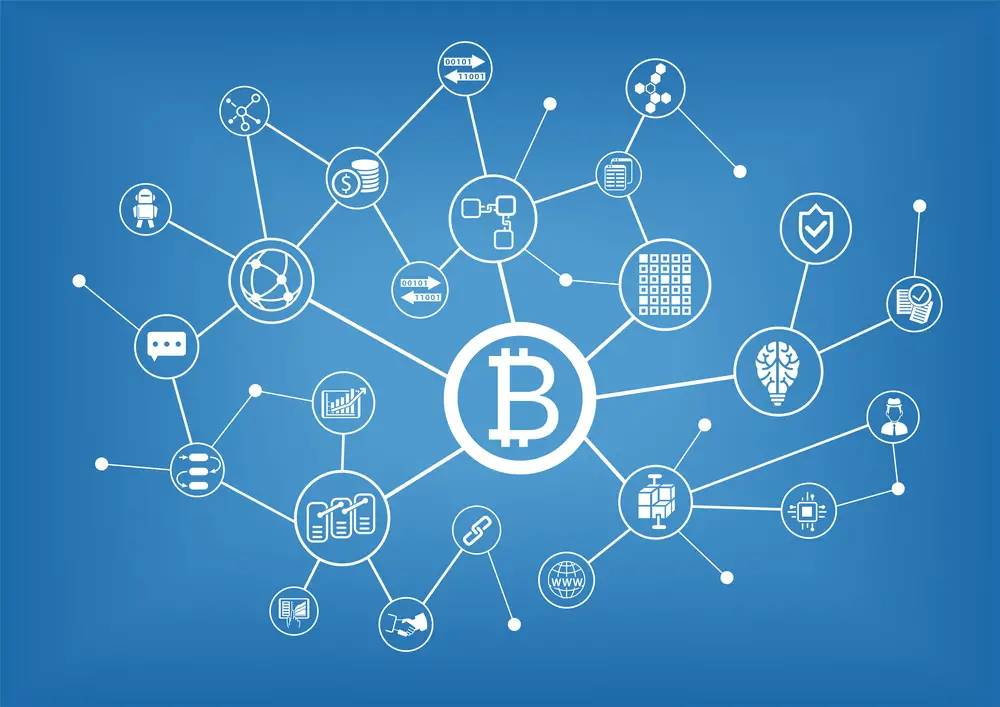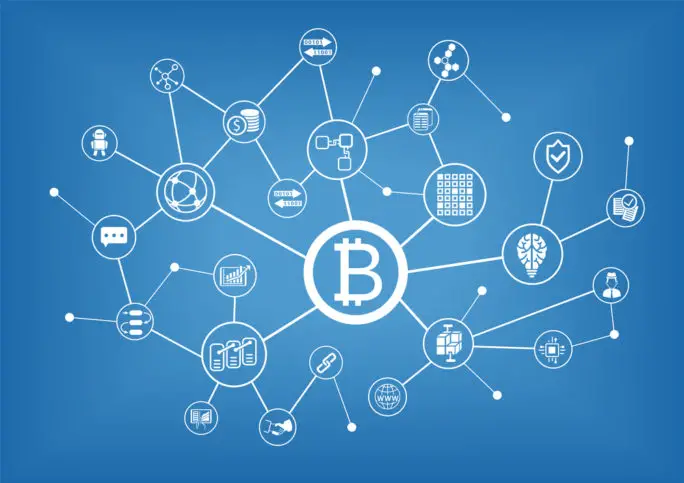In recent years, blockchain technology and cryptocurrencies have been in the news, but there are still many who are unclear about what they are and how they function.
Cryptocurrency is a form of digital or virtual money that uses cryptographic security measures and isn’t connected to any central bank.
Blockchain technology, which enables the use of cryptocurrencies and other digital assets, provides a secure and decentralized method for capturing transactions.
The launch of Bitcoin in 2009 was the first time blockchain technology was introduced and is now the most popular cryptocurrency.
Bitcoin was designed as a form of secure, decentralized, peer-to-peer electronic cash that would be resistant to censorship and interference.
Since its inception, blockchain and cryptocurrency has undergone significant growth and expansion. Thousands of other cryptocurrencies and tokens have been created and the technology has been applied to many different projects which go beyond digital currencies.
This article is an introduction to the fundamentals of cryptocurrency and blockchain technology, covering topics such as how they function, potential uses, and the current landscape of the market.
Additionally, we’ll go over tips on purchasing, storing, and utilizing cryptocurrency, as well as potential security hazards and scams connected with it.
By the conclusion of this article, you will be knowledgeable on fundamental cryptocurrency and blockchain technology concepts, allowing you to make informed decisions regarding your engagement in the market.
Potential applications of Cryptocurrency and Blockchain
Blockchain and cryptocurrencies could potentially revolutionize many different industries and applications. Below are some potential uses of cryptocurrency and blockchain technology:
Financial Services
Blockchain technology can be employed to enhance the security and efficiency of financial transactions, like fund transfers, trades resolution, and insurance.
Blockchain technology eliminates the need for a central clearing authority, thereby reducing costs, increasing transparency, and speeding up transactions.
Supply Chain Management
By leveraging blockchain, a secure and immutable record of transactions can be created within supply chains, increasing visibility and trust between stakeholders.
By doing this, it is possible to be more efficient, decrease fraudulent activity, and hold people accountable more effectively.
Digital Identity
Blockchain technology can be used to build a secure and decentralized system of digital identities for purposes like voting and authentication on the internet.
This can help to increase security and reduce fraud.
Internet of Things (IoT)
Blockchain can be implemented to create a safe, secure and decentralized network for interconnecting and managing IoT devices.
Enhancing the safety and productivity of IoT networks with this technology can support developments in smart cities and autonomous vehicles.
Gaming
Cryptocurrencies and blockchain technology enable the creation of decentralized gaming platforms, where players can securely and transparently own and trade digital assets.
Higher engagement from players coupled with new revenue opportunities resulting from game development are the possible outcomes of this.
Real estate
Blockchain can be leveraged to establish secure and transparent records of property rights and transactions, which could help minimize fraudulence while also increasing the velocity and efficiency of real estate contracts.
Art and Collectibles
Blockchain technology and cryptocurrency can be used to create a secure and transparent way to buy, sell, and trade art and other collectibles, which can help to increase the value of these assets and make it easier to prove authenticity.
The possibilities of utilizing blockchain technology and cryptocurrency are quite extensive.
As technology advances, we can look forward to more groundbreaking applications and advancements. This technology can be utilized to build a fairer, more transparent, and more secure world.

Overview of Blockchain in Financial Services
Blockchain technology could significantly affect the financial services sector.
In order to reduce costs and improve security, cost efficiency, and transparency, financial institutions are looking into utilizing blockchain technology.
Blockchain technology can provide enhanced payment and settlement capabilities in the financial services industry.
Blockchain technology can be leveraged to enable faster, more affordable and safer international payments and settlements.
Transactions are recorded on a public ledger, making the verification process both transparent and efficient.
Furthermore, smart contracts can be used to automate the clearing and settlement process, minimizing time and associated expenses compared to traditional methods.
Blockchain can also be leveraged in the field of financial services to aid digital identity management.
Blockchain technology can be used to create secure digital identities for individuals and organizations, offering improved trustworthiness and lessening the chance of fraud.
The secure storage and sharing of personal data is especially important in KYC and AML compliance.
Blockchain technology has the potential to revolutionize financial markets by increasing efficiency and transparency.
Blockchain technology allows for the creation of innovative financial tools like smart contracts and stablecoins, which make transactions faster and more efficient.
What’s more, blockchain technology can be utilized to build decentralized exchanges, which are beneficial when trading a variety of assets such as cryptocurrencies.
The financial services industry is looking into how blockchain technology can be employed to boost efficiency, transparency, and security of their activities, on the whole.
Though there is still uncertainty surrounding regulation and scalability, blockchain technology in financial services offers many potential benefits that are likely to spark further innovation and implementation.
Many financial institutions and companies are dedicating substantial resources to researching and developing blockchain applications, and it is anticipated that we will see more implementations of this technology in the finance sector in the near future.
Deeper Dive into Blockchain
For those interested in delving deeper into the world of blockchain technology, there are several key areas to explore.
Exploring the different blockchain protocols and their applications is an important factor to consider.
For instance, public blockchain networks such as Bitcoin make it possible for anyone to access and participate, whereas private blockchain networks like Hyperledger are tailored for usage in particular consortia or corporations.
Creating smart contracts, which are essentially contracts with the details written in code so that they execute on their own, is another important area of consideration.
Blockchain-based smart contracts have the capability to transform the way financial transactions occur, providing faster and more secure process of carrying out trades and agreements.
Furthermore, blockchain networks use different consensus algorithms to validate and record transactions.
Popular consensus algorithms include Proof-of-Work (PoW) and Proof-of-Stake (PoS), but there are other protocols such as Delegated Proof-of-Stake (DPoS) and Practical Byzantine Fault Tolerance (PBFT) that have been gaining in popularity.
Investigating the capabilities of blockchain technology outside of the finance sector is worth considering.
Blockchain technology has the potential to greatly enhance transparency, security and efficiency in various industries, such as supply chain management, healthcare and voting systems.
At its core, blockchain technology is constantly evolving with an abundance of details and potential.
To remain aware of the most current trends and updates, it is crucial to gain a full understanding of the potential uses as well as effects of this revolutionary technology.
What is a Non-Fungible Token?
NFTs are unique digital assets held on a blockchain, often referred to as Non-Fungible Tokens.
NFTs are non-fungible assets that cannot be replicated or replaced, unlike cryptocurrencies which are interchangeable and have the same value.
Collectible NFTs can include digital art, trading cards, and virtual real estate.
Non-fungible tokens are digital assets that are generated and logged using blockchain technology, which ensures their transparency and cannot be altered.
The use of NFTs offers an easy way to validate ownership and authenticity, as well as a new method for creators and collectors to monetize and exchange unique digital items.
NFTs offer immense potential, limited only by the creative ideas you can come up with.
Digital tokens can be utilized in the gaming industry as symbolic representations of unique in-game items, employed in the art world for digital collectibles, and adopted in the real estate industry to signify virtual property ownership.
They can also be used for voting systems, digital identity, and other areas where unique assets need to be tracked and traded.
Recent years have seen a tremendous uptick in the NFT market, and further growth is predicted as creators and businesses take advantage of this innovative technology.
When entering a new market, it’s important to consider potential risks such as regulation, digital rights, and market speculation.
Final Thoughts
Blockchain technology and cryptocurrencies could potentially revolutionize many industries and the way we perform transactions.
The potential applications of this technology are vast, from facilitating peer-to-peer money transfers, trading settlements and voting, to creating new opportunities for growth.
The financial services industry is exploring blockchain technology as a means of improving business processes, boosting trust, and reducing expenses.
As this technology is in its infancy, there are likely to be further advancements and uses as time goes on.
By being cognizant of potential threats such as fraud and scams, one can benefit from blockchain technology and cryptocurrencies to their fullest extent with the necessary precautions.
To stay one step ahead, it’s crucial to keep tabs on the latest developments and advancements in this innovative technology as we explore its potential.


